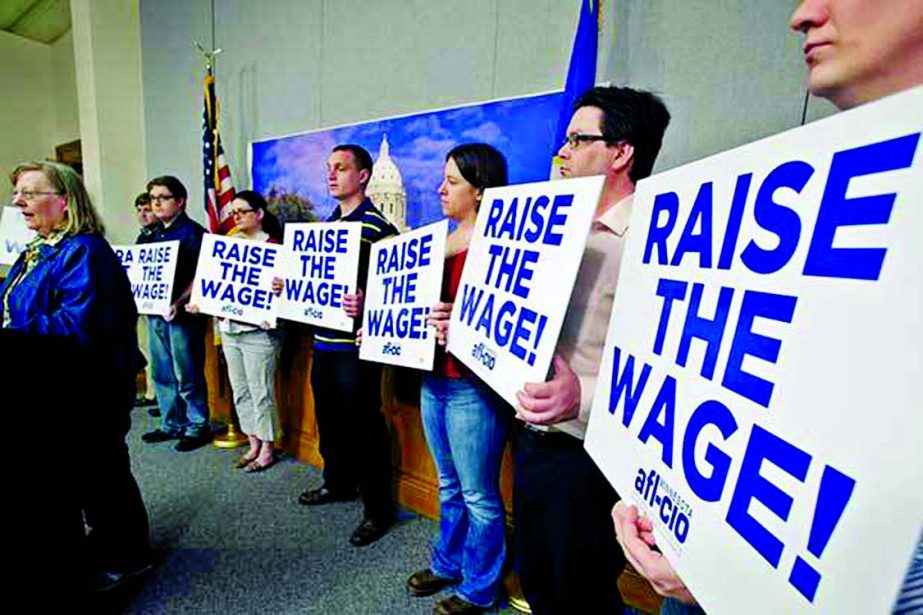
AFP, Washington :
The International Monetary Fund Thursday urged the US to boost incomes for the poor, including raising the minimum wage, saying that would help sustain the country’s rebound from the Great Recession.
Senior IMF economist Deniz Igan argued in a report posted on the IMF website that a combination of a higher minimum wage and an increase in a key tax benefit could go far to help lift people out of poverty.
The costs to the economy would be minimal, she argued, while the benefits, in a country with almost 50 million poor, could go far in reversing the “vicious cycle” of poverty.
“Unless the economic benefits of an improving economy are felt more widely, this recovery may well prove neither economically nor socially sustainable.”
Plunging into a fight that has divided the major US political parties, Igan rejected arguments that increasing the minimum wage, now $7.25 an hour, would cause companies to hire significantly fewer workers.
At that rate, she noted, a single parent would be earning well below the official poverty line of $16,057 a year.
Increasing their incomes could give poor families, who often live hand-to- mouth, more financial cushion.
At the same time, she said, “research shows a relatively small effect on employment.” Coupled with a basic wage rise, an increase in the earned income credit, a special credit for low earners, would also have a significant impact in helping poor families, while creating very little drag on the economy, she said.
“There are 10.6 million poor people who have a job, and often head households with children. Modest policy efforts can help change the negative dynamics that poverty creates.”
Her comments echoed the IMF’s annual report on the US economy in June which pointed out that real wages have fallen over the past four decades, and have not increased significantly in the rebound from the recession.
The International Monetary Fund Thursday urged the US to boost incomes for the poor, including raising the minimum wage, saying that would help sustain the country’s rebound from the Great Recession.
Senior IMF economist Deniz Igan argued in a report posted on the IMF website that a combination of a higher minimum wage and an increase in a key tax benefit could go far to help lift people out of poverty.
The costs to the economy would be minimal, she argued, while the benefits, in a country with almost 50 million poor, could go far in reversing the “vicious cycle” of poverty.
“Unless the economic benefits of an improving economy are felt more widely, this recovery may well prove neither economically nor socially sustainable.”
Plunging into a fight that has divided the major US political parties, Igan rejected arguments that increasing the minimum wage, now $7.25 an hour, would cause companies to hire significantly fewer workers.
At that rate, she noted, a single parent would be earning well below the official poverty line of $16,057 a year.
Increasing their incomes could give poor families, who often live hand-to- mouth, more financial cushion.
At the same time, she said, “research shows a relatively small effect on employment.” Coupled with a basic wage rise, an increase in the earned income credit, a special credit for low earners, would also have a significant impact in helping poor families, while creating very little drag on the economy, she said.
“There are 10.6 million poor people who have a job, and often head households with children. Modest policy efforts can help change the negative dynamics that poverty creates.”
Her comments echoed the IMF’s annual report on the US economy in June which pointed out that real wages have fallen over the past four decades, and have not increased significantly in the rebound from the recession.

